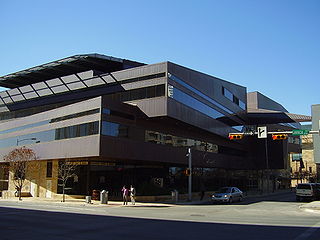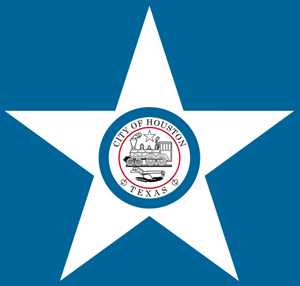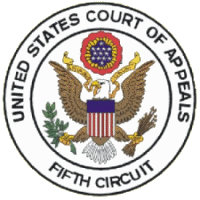February 22, 2016 •
Monday News Roundup
Lobbying New Mexico: “Senators Credit KOB As They Pass Campaign Finance System Reform” by Ryan Luby for KOB Campaign Finance New Mexico: “‘Dark Money’ Disclosure Bill Dies in Final Days of Session” by Trip Jennings for New Mexico In Depth […]
Lobbying
New Mexico: “Senators Credit KOB As They Pass Campaign Finance System Reform” by Ryan Luby for KOB
Campaign Finance
New Mexico: “‘Dark Money’ Disclosure Bill Dies in Final Days of Session” by Trip Jennings for New Mexico In Depth
Washington: “State: Food industry lobby engaged in ‘egregious’ money laundering in 2013 vote” by Joel Connelly for Seattle Post-Intelligencer
Ethics
Alaska: “Former Juneau Lawmaker Fined $18K for Allegedly Helping Oil Companies While Seeking Oil Jobs” by Matt Miller for KTOO
Missouri: “Gutting of Lobbying Bill Clouds Ethics Agenda’s Future” by Kurt Erickson for St. Louis Post-Dispatch
Missouri: “Missouri Rep. Don Gosen Abruptly Resigns under Cloud of Suspicion” by Jason Hancock for Kansas City Star
New York: “Former Assemblyman Dennis Gabryszak Accused of Sexually Harassing Staffers Is Fined $100G by Legislative Ethics Commission” by Kenneth Lovett for New York Daily News
Ohio: “Ginther’s Ethics Proposals Get Public Hearing” by Mike Foley for WCBE
Texas: “Reports: Indicted Crystal City mayor jailed after disrupted council meeting” by Claire Cardona for Dallas Morning News
Virginia: “Virginia Taxpayers Pick Up $2,435 Food and Beer Bill for Mystery Guests in Redskins Suite” by Graham Moomaw for Richmond Times-Dispatch
Elections
“Fall of the House of Bush: How last name and Donald Trump doomed Jeb” by Ed O’Keefe, Dan Balz and Matea Gold for the Washington Post
“Sanders Supporters Like Chipotle, While Trump Fans Prefer Sonic” by Tim Higgins for Bloomberg.com
“Bernie’s Army of Coders” by Darren Samuelsohn for Politico
“Pope Francis Suggests Donald Trump Is ‘Not Christian’” by Jim Yardley for The New York Times
Nevada: “Hillary Clinton Beats Bernie Sanders in Nevada Caucuses” by Amy Chozick and Patrick Healy for The New York Times
South Carolina “The More Donald Trump Defies His Party, the More His Supporters Cheer” by Trip Gabriel for The New York Times
South Carolina: “Donald Trump’s South Carolina Victory Spurs New G.O.P. Jostling” by Maggie Haberman and Alan Rappeport for The New York Times
February 8, 2016 •
Special Elections for Texas House Seats to Be Held May 7
On February 3, Texas Gov. Greg Abbott announced a special election will be held on May 7 for Texas House District 120. The winner will serve the remainder of the term for the seat left vacant by Ruth Jones McClendon, […]
 On February 3, Texas Gov. Greg Abbott announced a special election will be held on May 7 for Texas House District 120. The winner will serve the remainder of the term for the seat left vacant by Ruth Jones McClendon, who resigned on January 31.
On February 3, Texas Gov. Greg Abbott announced a special election will be held on May 7 for Texas House District 120. The winner will serve the remainder of the term for the seat left vacant by Ruth Jones McClendon, who resigned on January 31.
A special election will also be held on the same date for House District 139 to serve the unexpired term left vacant by Sylvester Turner, who became the mayor of Houston on January 2.
The special elections join the state’s May uniform election date.
Photo of Ruth Jones McClendon courtesy of the Texas House of Representatives website.
December 21, 2015 •
Austin, TX to Reform City Lobbying and Campaign Finance Laws
On December 17, the Austin, Texas City Council voted to reform the city’s lobbying and campaign finance laws. The council approved a lobbyist reform proposal, which includes initiating changes to city ordinances relating to the regulation of lobbyists and to […]
 On December 17, the Austin, Texas City Council voted to reform the city’s lobbying and campaign finance laws.
On December 17, the Austin, Texas City Council voted to reform the city’s lobbying and campaign finance laws.
The council approved a lobbyist reform proposal, which includes initiating changes to city ordinances relating to the regulation of lobbyists and to the duties and functions of the Ethics Review Commission. The council also approved a resolution regarding mandating disclosure of campaign contributions and expenditures by non-profits and other entities not currently required to disclose their funding. The city manager has been directed by the council to write these ordinances, which will then be put to a vote by the council sometime in 2016.
December 15, 2015 •
Austin, Texas Campaign Finance Rules Challenged
On December 14, testimony was heard in a case in U.S. District Court challenging the city of Austin’s campaign finance ordinances. City councilman Don Zimmerman originally brought the lawsuit last summer alleging the city’s blackout period for fundraising and the […]
 On December 14, testimony was heard in a case in U.S. District Court challenging the city of Austin’s campaign finance ordinances. City councilman Don Zimmerman originally brought the lawsuit last summer alleging the city’s blackout period for fundraising and the political contribution limits are unconstitutional violations of free speech. The trial being conducted before U.S. District Judge Lee Yeakel is expected to conclude this week.
On December 14, testimony was heard in a case in U.S. District Court challenging the city of Austin’s campaign finance ordinances. City councilman Don Zimmerman originally brought the lawsuit last summer alleging the city’s blackout period for fundraising and the political contribution limits are unconstitutional violations of free speech. The trial being conducted before U.S. District Judge Lee Yeakel is expected to conclude this week.
Photo of Austin, Texas skyline at night by Argash on Wikimedia Commons.
November 16, 2015 •
Commission Backs Proposed Changes to Austin, Texas Lobbying Law
The Ethics Review Commission has given its support to Council Member Leslie Pool’s proposed lobbying law changes. These changes include broadening the definition of lobbyist, increasing disclosure requirements, and removing a loophole allowing part-time lobbyists to avoid registering. Pool’s proposal […]

The Ethics Review Commission has given its support to Council Member Leslie Pool’s proposed lobbying law changes. These changes include broadening the definition of lobbyist, increasing disclosure requirements, and removing a loophole allowing part-time lobbyists to avoid registering.
Pool’s proposal has been met with opposition from those involved in the design and building industries. They claim the ordinance is too broad and would require architects, engineers, and others involved in the building industries to register as lobbyists. Also, many of these professionals currently serve on city boards and commissions. If they are required to register, they will have to resign from those seats because city law prohibits registered lobbyists from serving on city boards and commissions. The group representing the developers feels such a move would result in the city being robbed of valuable expertise.
This opposition has resulted in Pool making some changes to the ordinance, but the group representing developers is still not satisfied.
So far, registered lobbyists have not opposed the new changes even though the proposal would increase their reporting requirements. If passed, the ordinance would require lobbyists to provide greater detail about who they are representing, how much money is being spent on a lobbying efforts, and how much they receive in payments from clients.
The ordinance will now be presented to the Audit and Finance Committee. From there is will proceed through City Council, with a possible final vote coming early next year.
Photo of the Austin, Texas skyline by Erik A. Ellison on Wikimedia Commons.
September 10, 2015 •
Texas State House District No. 118 Special Election on November 3
A special election for Texas State House District No. 118 will be held on November 3. The winner will serve the remainder of the term for the seat left vacant by Joe Farias who resigned from office on August 10. […]
 A special election for Texas State House District No. 118 will be held on November 3. The winner will serve the remainder of the term for the seat left vacant by Joe Farias who resigned from office on August 10. Six candidates are competing the seat. The election was announced by Gov. Greg Abbott on August 25 to join the November uniform election date.
A special election for Texas State House District No. 118 will be held on November 3. The winner will serve the remainder of the term for the seat left vacant by Joe Farias who resigned from office on August 10. Six candidates are competing the seat. The election was announced by Gov. Greg Abbott on August 25 to join the November uniform election date.
September 3, 2015 •
Austin, TX Lobby Law Changes in the Works
On September 23, Austin, Texas City Council Member Leslie Pool intends to present a new lobbying ordinance to the Audit and Finance Committee. On Monday, the Ethics Review Commission was asked by Pool to set up a public hearing before […]
 On September 23, Austin, Texas City Council Member Leslie Pool intends to present a new lobbying ordinance to the Audit and Finance Committee.
On September 23, Austin, Texas City Council Member Leslie Pool intends to present a new lobbying ordinance to the Audit and Finance Committee.
On Monday, the Ethics Review Commission was asked by Pool to set up a public hearing before the September 23 date. “Council members can start raising money in May [2016], so that’s why we’re trying to keep this moving forward,” Pool said, according to the Austin Monitor.
Commission Chair Austin Kaplan told the Austin Monitor the ordinance would subsequently be addressed by the full Ethics Review Commission at its September 28 meeting. Proposed changes to the city’s lobbying law include increasing the registration fee from $300 to $350 a year for those earning at least $2,000 per quarter and eliminating the exception to register when an individual claims communications are incidental to other employment not for the purpose of lobbying.
Photo of Austin, Texas skyline by Erik A. Ellison on Wikimedia Commons.
July 31, 2015 •
Austin, Texas Campaign Finance Laws Challenged in Court
On July 27, city of Austin, Texas Councilman Don Zimmerman filed suit seeking a preliminary injunction against city campaign finance provisions relating to blackout periods. The current law only allows officeholders, candidates, and their respective committees to accept campaign contributions […]
 On July 27, city of Austin, Texas Councilman Don Zimmerman filed suit seeking a preliminary injunction against city campaign finance provisions relating to blackout periods. The current law only allows officeholders, candidates, and their respective committees to accept campaign contributions during the last 180 days before an election or recall election. Zimmerman asserts the blackout period banning contributions in the city violates his First Amendment rights of free speech. On February 2, 2015, in Gordon v. City of Houston, a federal district court declared a similar ordinance in the city of Houston as facially unconstitutional and permanently enjoined the city from enforcing the ordinance.
On July 27, city of Austin, Texas Councilman Don Zimmerman filed suit seeking a preliminary injunction against city campaign finance provisions relating to blackout periods. The current law only allows officeholders, candidates, and their respective committees to accept campaign contributions during the last 180 days before an election or recall election. Zimmerman asserts the blackout period banning contributions in the city violates his First Amendment rights of free speech. On February 2, 2015, in Gordon v. City of Houston, a federal district court declared a similar ordinance in the city of Houston as facially unconstitutional and permanently enjoined the city from enforcing the ordinance.
Zimmerman v. City of Austin, Texas, filed in the United States District Court for the Western District of Texas, Austin Division, also claims the law’s imposition of aggregate limits of the total contributions a candidate can accept from sources other than natural persons eligible to vote in a postal zip code completely or partially within the Austin city limits is unconstitutional, creates a burden on campaigns, and does not relate to any threat of corruption. The lawsuit also challenges a 90 day requirement for campaign account terminations. “Political speech is the very core of the First Amendment, but Austin’s campaign finance system seeks to control debate by controlling fundraising and spending,” stated Zimmerman’s attorney, Jerad Najvar, in a press release.
Photo of the Austin, Texas skyline by Erik A. Ellison on Wikimedia Commons.
June 1, 2015 •
Texas Legislature Adjourns Sine Die
Today the Legislature adjourned sine die. Gov. Greg Abbott has 20 days after transmittal of bills sent at the end of the session to sign or veto the legislation. If the governor does not act on a bill, it becomes […]
 Today the Legislature adjourned sine die. Gov. Greg Abbott has 20 days after transmittal of bills sent at the end of the session to sign or veto the legislation. If the governor does not act on a bill, it becomes law.
Today the Legislature adjourned sine die. Gov. Greg Abbott has 20 days after transmittal of bills sent at the end of the session to sign or veto the legislation. If the governor does not act on a bill, it becomes law.
March 6, 2015 •
Special Election Announced in Texas
On March 4, Texas Gov. Greg Abbott announced a special election will be held on March 31 for Texas House District 124. The winner will serve the remainder of the term for the seat left vacant by Jose Antonio Menendez. […]
 On March 4, Texas Gov. Greg Abbott announced a special election will be held on March 31 for Texas House District 124.
On March 4, Texas Gov. Greg Abbott announced a special election will be held on March 31 for Texas House District 124.
The winner will serve the remainder of the term for the seat left vacant by Jose Antonio Menendez. Menendez won a special election to the state senate earlier this year.
February 19, 2015 •
Texas Governor Wants Ethics Reform
On February 17, in his state of the state address, Texas Gov. Greg Abbott emphasized his desire for ethics reform legislation. Included in his proposals are requirements for more detailed disclosure concerning campaign finance, disclosure of elected officials’ contracts with […]
 On February 17, in his state of the state address, Texas Gov. Greg Abbott emphasized his desire for ethics reform legislation. Included in his proposals are requirements for more detailed disclosure concerning campaign finance, disclosure of elected officials’ contracts with public entities, and a prohibition of lawmakers voting on “legislation from which they could profit.”
On February 17, in his state of the state address, Texas Gov. Greg Abbott emphasized his desire for ethics reform legislation. Included in his proposals are requirements for more detailed disclosure concerning campaign finance, disclosure of elected officials’ contracts with public entities, and a prohibition of lawmakers voting on “legislation from which they could profit.”
Abbott challenged the legislature by stating, “The most important commodity we have as elected officials is the bond we share with our constituents. Transparency – and rising above even the appearance of impropriety – will strengthen that bond. Rejection of ethics reform will weaken that bond and rightfully raise suspicions about who we truly serve – ourselves, or the people of Texas.”
The governor’s entire address can be seen here:
January 12, 2015 •
Houston Ordinance Curtailing Political Contributions Preliminarily Blocked
On January 9, 2015, a federal court issued a preliminary injunction enjoining the city of Houston from enforcing its ordinance prohibiting political contributions until the first day of February prior to the day of an election. In Gordon v. City […]
 On January 9, 2015, a federal court issued a preliminary injunction enjoining the city of Houston from enforcing its ordinance prohibiting political contributions until the first day of February prior to the day of an election.
On January 9, 2015, a federal court issued a preliminary injunction enjoining the city of Houston from enforcing its ordinance prohibiting political contributions until the first day of February prior to the day of an election.
In Gordon v. City of Houston, the United States District Court for The Southern District of Texas, Houston Division, found the city did not present any evidence showing the ordinance advanced the city’s interest of preventing the appearance of corruption. The plaintiff argued the ordinance “stifles core political activity and prevents candidates from raising funds to run effective campaigns, yet it does not further the only legitimate governmental interest relevant in this area, i.e., the prevention of corruption or its appearance.”
Because this is a preliminary injunction, the court found the public interest would not be “disserved” by its issuance, concluding, “Any harm caused to defendants by issuing the injunction does not outweigh the more serious harm that will be suffered by Gordon if the challenged ordinance is enforced against him.”
August 25, 2014 •
TX Ethics Commission Issues Advisory Opinions and Proposed Rule Changes
On August 21, the Texas Ethics Commission issued two advisory opinions and a proposed rule amendment. Advisory Opinion 519 holds a state candidate is not prohibited from accepting an in-kind political contribution from an out-of-state political committee. The contribution to […]
 On August 21, the Texas Ethics Commission issued two advisory opinions and a proposed rule amendment.
On August 21, the Texas Ethics Commission issued two advisory opinions and a proposed rule amendment.
Advisory Opinion 519 holds a state candidate is not prohibited from accepting an in-kind political contribution from an out-of-state political committee. The contribution to a candidate is allowed if made from a permissible source and the candidate properly complies with the applicable disclosure requirements.
In Advisory Opinion 518, the commission upheld that a group is not a political committee if not accepting or intending to accept political contributions and not using or intending to use more than 20 percent of its funds and other resources to make political expenditures.
The Ethics Commission also voted to propose a rule change by defining “principal purpose” in relation to a group making political contributions and expenditures. While a group can have more than one principal purpose, the definition would create a threshold triggering the disclosure of political contributions and expenditures. The commission also proposed other rule changes. The proposed rules are currently open for comment.
Photo of the Texas Capitol Rotunda dome interior by Ed Uthman on Wikimedia Commons.
August 13, 2014 •
Texas PAC Restriction Struck Down as Unconstitutional
On August 12, 2014, the U.S. Fifth Circuit Court of Appeals struck down a state law restricting expenditures by certain political committees. The law prevented a general-purpose committee from making political expenditures of more than $500 until a treasurer appointment […]
 On August 12, 2014, the U.S. Fifth Circuit Court of Appeals struck down a state law restricting expenditures by certain political committees.
On August 12, 2014, the U.S. Fifth Circuit Court of Appeals struck down a state law restricting expenditures by certain political committees.
The law prevented a general-purpose committee from making political expenditures of more than $500 until a treasurer appointment had been on file with the Ethics Commission for at least 60 days and contributions had been accepted from at least 10 persons.
The same restriction did not apply to specific-purpose committees. The court held the restriction to be an unconstitutional burden on free speech.
State and Federal Communications, Inc. provides research and consulting services for government relations professionals on lobbying laws, procurement lobbying laws, political contribution laws in the United States and Canada. Learn more by visiting stateandfed.com.


